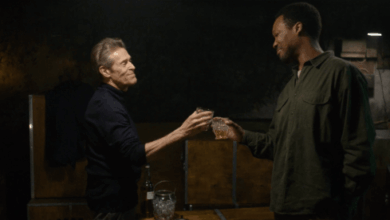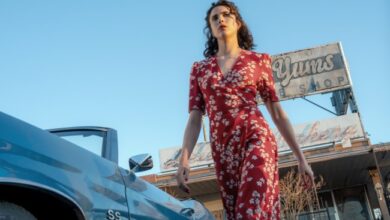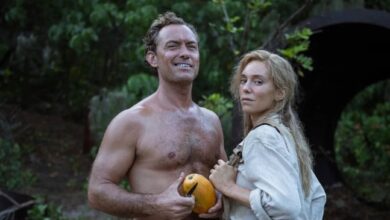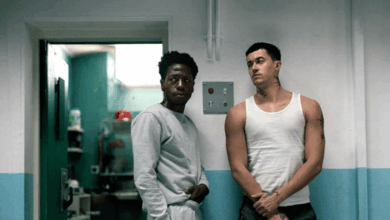Horsegirls Film Review: A Unique Coming-of-Age Story Through Hobby Horsing

There are a few things Margarita (Lillian Carrier) knows for certain: she doesn’t want a job—especially not one that involves wearing “hard pants.” She loves horses, adores her mother, and avoids situations that might expose her to ridicule. Margarita, an autistic young woman (as is Carrier herself), is initially resistant to the expectations of adulthood. Still, she has already made strides: she graduated from college and spends her days joyfully riding her adult-sized tricycle adorned with a plush horse head named “Cheeseburger.” Her simple pleasures include karaoke nights with her mother, Sandy (Gretchen Mol), at their favorite local diner.
As with many people, Margarita’s desires and responsibilities often clash. Her disability may shape these experiences differently than for neurotypical individuals, but at the core, she is navigating familiar emotional terrain. This universal yet distinct journey is the heart of Horsegirls, the imaginative and emotionally resonant directorial debut from Lauren Meyering.
At the center of the story is the unusual sport of hobby horsing—yes, galloping with stick horses—which becomes a metaphor for identity and belonging. While the sport may appear whimsical or odd to outsiders, to Margarita it represents freedom, purpose, and acceptance. It’s a brilliant narrative device that offers fresh insight into coming-of-age themes.
Loosely inspired by co-writer and producer Mackenzie Breeden’s personal experiences—she also appears in a minor role—Horsegirls begins with Margarita at a quiet crossroads. Her father’s mysterious death and her mother’s ongoing battle with cancer have left deep emotional impacts. Sandy, a fierce and loving parent, supports Margarita but also worries about how the world might treat her daughter. Her well-intentioned attempts to prepare Margarita for adulthood sometimes backfire, highlighting the tension between protection and independence.
Margarita’s world changes when she stumbles upon a hobby horsing class at a local school. To many, it might seem absurd. But to her, it’s magical. The film cleverly uses this seemingly childish sport to challenge assumptions and celebrate individuality. What others may mock, Margarita embraces—and in doing so, discovers a vibrant community where she finally feels she belongs.
Conflict arises when Sandy cannot see the value in Margarita’s new passion. This rift between mother and daughter is both painful and profoundly human. The film’s layered script blends light-hearted whimsy with serious drama, offering a nuanced look at disability, family, and growth.
See More ...
Carrier’s performance is central to the film’s success. Her authentic portrayal of Margarita lends the story credibility and emotional weight. Her character’s journey is not just about hobby horsing—it’s about self-definition, autonomy, and love.
Meyering takes creative risks, mixing fantasy with realism. While some imaginative sequences don’t fully land, the overall narrative remains compelling. The film handles representation of disability with sensitivity and avoids clichés, offering instead a fresh, empathetic viewpoint.
Horsegirls is a film that surprises. Through its offbeat premise and heartfelt performances, it redefines what a coming-of-age film can be. Much like the sport it champions, it may be misunderstood at first glance—but it deserves a closer look.




